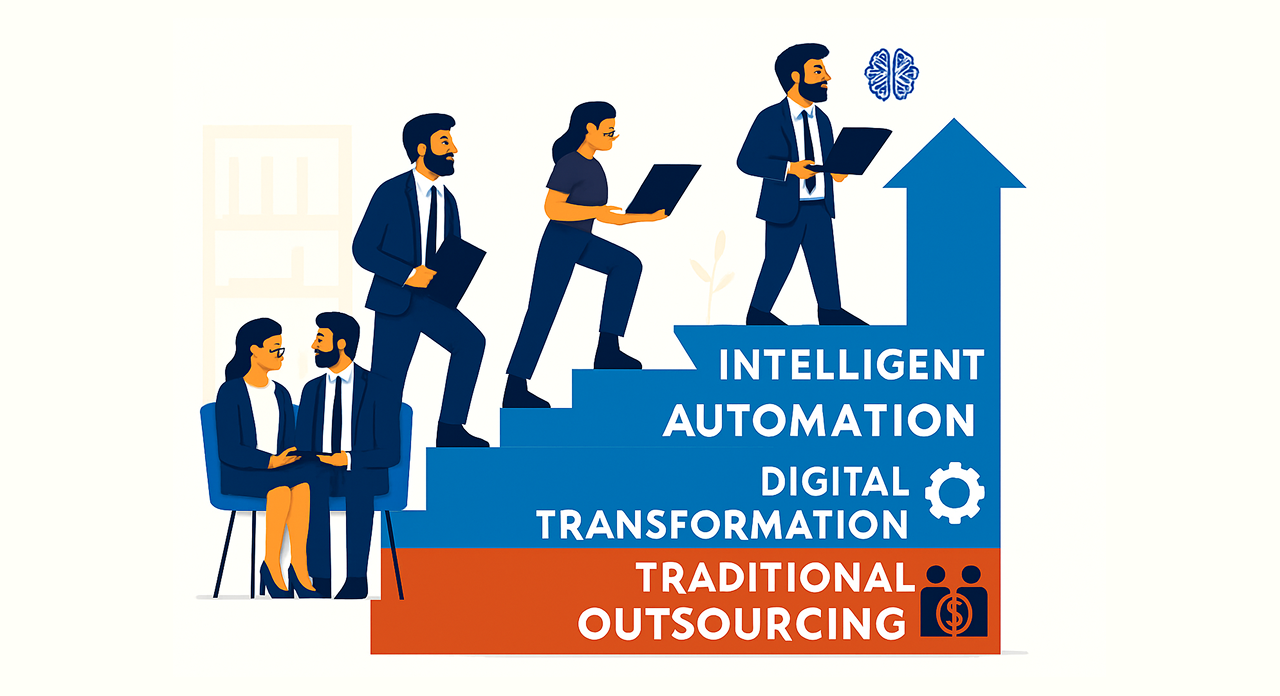In the vibrant heart of Hyderabad, we witness daily how India’s shared services sector is not only thriving but fundamentally reshaping its role in the global business landscape. The journey from “cost arbitrage centers” to “strategic value hubs” has been swift, fuelled by technology, talent, and a culture that craves innovation. Today, in 2025, the evolution of shared services in India is a story of adaptability, resilience, and relentless pursuit of excellence.
The Shifting Ground: From Transactional to Transformational
Ten years ago, shared services in India were predominantly transactional: Payroll processing, finance, and HR functions were core offerings. Today, these remain foundational – 77% of Shared Services Organizations (SSOs) continue to provide procure-to-pay, 71% offer order-to-cash, and 70% deliver record-to-report support. However, as global business needs have become more sophisticated, so has our scope.
Expansion into strategic areas:
- 43% of SSOs now deliver data analytics.
- 50% have adopted master data management.
- Support has broadened to tax administration (43%), statutory reporting (41%), and cutting-edge technology services (36%).
This push beyond the back office reflects a significant market shift: global players now view India’s shared services not just as cost centers but as strategic business enablers.
Technology: The Great Catalyst
The rise of AI and automation in our industry cannot be overstated. For the first time, generative AI ranks as the top investment priority for shared services globally, marking a rapid leap from zero to dominance in just a year. Automation, analytics, and intelligent ecosystems are empowering companies to do more with less, and with greater accuracy.
As Thomas Dohmke, CEO of GitHub, aptly notes, “Just as every company became a software company, we now live in a moment where every company must become an AI company. Cracking the code of AI transformation must be CEO-driven.”
This transformation is not just automating routine tasks but elevating problem-solving, decision-making, and ultimately, the value proposition to our clients.
India at the Forefront
India has emerged as the world’s most preferred location for global shared services, outpacing major economies like Poland and Mexico. According to Deloitte’s 2023 Global Shared Services and Outsourcing Survey, India’s Global Capability Centers (GCCs) now generate $60 billion in revenue, projected to grow to $75–80 billion within the next five years.
Key metrics for 2025 include:
- Shared services market size in India: Estimated at $62.7 billion.
- Expected market CAGR (2025–2032): 23.1%, signalling robust future growth.
- India hosts over 1,900 GCCs, employing more than two million professionals.
As Saurabh Mathur, Partner at Deloitte Touche Tohmatsu India LLP, reflects, “Shared service centres are going to be at the core of India strengthening its position on the global map, and achieving the country’s services exports target of US$400 billion for the current fiscal year.”
Evolving Talent and Culture
A unique advantage for India is the vast, diverse, and highly skilled talent pool. With increased focus on upskilling—particularly in analytics, digital transformation, and AI—our teams are not just delivering services; they are co-creating solutions alongside international clients. Hybrid models that blend the strengths of in-office and remote work further enhance agility and resilience.
Sumit Mitra, CEO of Tesco Business Solutions, shares, “Sustainability and innovation are not just buzzwords; they’re daily practices. The next horizon is leveraging human potential and technology hand-in-hand.”
What Lies Ahead?
Market sentiment remains unequivocally positive: 93% of organizations believe shared services continue to work, and 61% see the model expanding in scope and impact through 2025 and beyond. There’s an undeniable consensus—while cost efficiency remains the entry point, it’s now the broader value, trust, and strategic partnership that define long-term success.
The coming years will see shared services centers in India become even more essential to Fortune 500 strategies. As we look ahead, three priorities stand out:
- Relentless Digital Transformation: Driving competitive advantage and resilience.
- Customer Centricity: Embracing the philosophy “We don’t win until our customers say we win” (Mary Barra, CEO, General Motors).
- Workforce Empowerment: Investing in leadership and learning to harness the full potential of our people.
As CEO of a Hyderabad-based shared services company, I am inspired daily by our teams’ ability to innovate, adapt, and drive value for organizations worldwide. The evolution of shared services in India is a testament to our collective vision—a vision where collaboration, technology, and humanity intersect to create business outcomes and transformative change.
As Ratan Tata once said, “Take the stones people throw at you, and use them to build a monument.”
In 2025, the monument is India’s thriving, rapidly evolving shared services ecosystem—determined, dynamic, and undeniably world-class.
